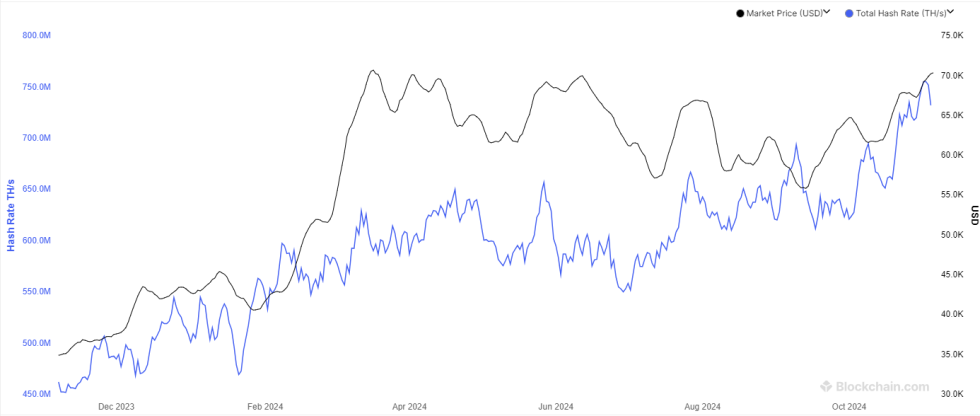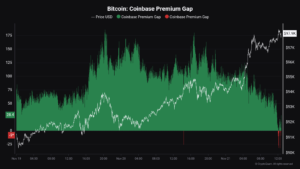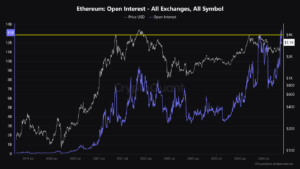
On-chain data shows the Bitcoin Difficulty has seen a third-consecutive increase in the latest network adjustment. Here's what this means for BTC.
Bitcoin Difficulty Has Just Set A New All-Time High
According to data from CoinWarzthe BTC Difficulty has seen a positive change during the latest network adjustment. Tea “Difficulty” here is a metric that tracks how hard the Bitcoin miners would find it to mine on the network.
This indicator's value refreshes every couple of weeks without human involvement; the code Satoshi wrote automatically makes the adjustments.
The latest such adjustment occurred during the past day and resulted in the difficulty of going up the chain. Below is a chart that shows how this metric's value has changed over the last few months.
The value of the metric appears to have seen a sharp surge recently | Source: CoinWarz
The graph shows that the Bitcoin Difficulty also saw jumps during the previous two adjustments, but this latest increase of more than 6% is the largest out of the three.
As for why the chain has been upping its Difficulty recently, the reason lies in the trend that the Hashrate has been observing. Tea “Hashrate” is a measure of the total amount of computing power that the miners as a whole have connected to the Bitcoin blockchain.
Here is a chart from Blockchain.com that shows the trend in the 7-day average value of this BTC indicator over the past year:

Looks like the value of the indicator has been following an uptrend in recent weeks | Source: Blockchain.com
The graph shows that the 7-day average Bitcoin Hashrate has been climbing for a while now and hitting new all-time highs (ATHs). The uptrend has been particularly sharp during the last couple of weeks, which suggests the miners have become more aggressive with their expansion.
Now, what's the relevance of this to the Difficulty? Well, one of the network's core features is that its block time remains consistent around the 10-minute mark.
Whenever miners add power, they become faster at their task of mining and churn out blocks at a faster pace than this standard. To counteract this speed increase, the network makes it harder for miners to perform their tasks, bringing them back to 10 minutes per block.
The Hashrate of the cryptocurrency has seen an explosion recently, so the chain has only responded as designed by appropriately increasing the Difficulty to a new record.
But why did BTC's creator add this limitation at all? Tea block subsidyserving as the only means of producing more BTC, can be constrained by restricting how fast miners can go through blocks and earn these rewards.
The asset's supply is continuously growing, but at least the Difficulty's existence means its inflation is only happening at a predictable pace.
BTC Price
Bitcoin declined under $67,000 yesterday, but the asset quickly bounced back as its price recovered to $69,700.
The price of the coin seems to have surged over the last 24 hours | Source: BTCUSDT on TradingView
Featured image from Dall-E, Blockchain.com, chart from TradingView.com

